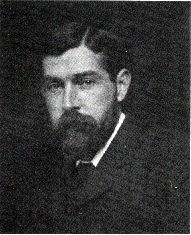F. H. Bradley
| Francis Herbert Bradley | |
|---|---|
 |
|
| Born |
30 January 1846 Clapham, Surrey, England |
| Died | 18 September 1924 (aged 78) Oxford, Oxfordshire, England |
| Alma mater | University College, Oxford |
| Era | 19th-century philosophy |
| Region | Western Philosophy |
| School | British idealism |
|
Main interests
|
Metaphysics, Ethics, Philosophy of history, Logic |
|
Influenced
|
|
Francis Herbert Bradley OM (30 January 1846 – 18 September 1924) was a British idealist philosopher. His most important work was Appearance and Reality (1893).
Bradley was born at Clapham, Surrey, England (now part of the Greater London area). He was the child of Charles Bradley, an evangelical preacher, and Emma Linton, Charles's second wife. A. C. Bradley was his brother. Educated at Cheltenham College and Marlborough College, he read, as a teenager, some of Immanuel Kant's Critique of Pure Reason. In 1865, he entered the University College, Oxford. In 1870, he was elected to a fellowship at Oxford's Merton College where he remained until his death in 1924. Bradley is buried in Holywell Cemetery in Oxford.
During his life, Bradley was a respected philosopher and was granted honorary degrees many times. He was the first British philosopher to be awarded the Order of Merit. His fellowship at Merton College did not carry any teaching assignments and thus he was free to continue to write. He was famous for his non-pluralistic approach to philosophy. His outlook saw a monistic unity, transcending divisions between logic, metaphysics and ethics. Consistently, his own view combined monism with absolute idealism. Although Bradley did not think of himself as a Hegelian philosopher, his own unique brand of philosophy was inspired by, and contained elements of, Georg Wilhelm Friedrich Hegel's dialectical method.
...
Wikipedia
